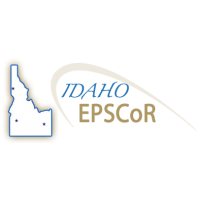Lack of environmental monitoring poses barriers to management for food-energy-water nexus in many communities across the world. Local and traditional knowledge of stakeholders in the community can be key to framing the decision problem for adaptive management of these under-monitored hyper-localized FEW nexus in these communities. This research examined the usefulness of the InterACTWEL participatory framing tool for co-production of a conceptual adaptive management model for agricultural water systems in a hyper-localized FEW nexus system of a rural community – E. Palaguttapalli Gram Panchayat village in India. The presentation highlights some of the lessons learned in engaging the community for formulating the diverse elements of the decision problem, including co-production of problem scope, criteria, and models, necessary for generating adaptation plans.
Resource Use
License
CC-BY 4.0
Recommended Citation
Babbar-Sebens, M., Tilt, J., Ramadas, M., Kolagani, N., & Shankari Naren, U. (2023). Framing a Decision Model for a Hyper-Localized Food, Energy, and Water Nexus in a Rural Community in India. University of Idaho. https://doi.org/10.7923/PK88-KR38
Funding
Ministry of Education, India: PARC/2018-2019/P1080/SL
National Science Foundation, EngageINFEWS Research Coordination Network: 1856059
Data and Resources
| Field | Value |
|---|---|
| Modified | 2023-05-03 |
| Release Date | 2023-05-02 |
| Publisher | |
| Identifier | d33791e6-7630-4766-9af6-d85d34aaa127 |
| Spatial / Geographical Coverage Area | POINT (79.064489478925 13.540725819587) |
| Spatial / Geographical Coverage Location | southern India |
| Temporal Coverage | Wednesday, January 1, 2020 - 00:00 to Wednesday, February 1, 2023 - 00:00 |
| Language | English (United States) |
| License | |
| Author | |
| Contact Name | Meghna Babbar-Sebens |
| Contact Email | |
| Public Access Level | Public |
| DOI | 10.7923/pk88-kr38 |


![[Open Data]](https://assets.okfn.org/images/ok_buttons/od_80x15_blue.png)